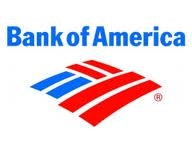NEW YORK (AP) — Bank of America Corp (NYSE:BAC) wants a bigger slice of the mortgage market. This time, the bank is being more careful about how to get it.
On Thursday, the bank sketched out plans for regaining some of the ground it has lost in home lending. That’s a change from the strategy of the last few years, when it has concentrated on shedding the parts of its mortgage business that it saw as undesirable.

“We need to really focus on people that we are very comfortable with,” CEO Brian Moynihan said in a call with analysts.
Bank of America Corp (NYSE:BAC) has been dealing with the fallout from soured mortgages made before the financial crisis for years now. Thursday brought another reminder, when the bank said that fourth-quarter earnings shrank because it had to take big charges to settle two mortgage-related disputes.
Even so, the bank knows that the housing market, in many respects, is improving. It doesn’t want to miss out on a boom that could provide a steady source of revenue.
Housing prices are rising in many parts of the country. On Thursday the government reported that home builders broke ground on homes last month at the fastest pace since 2008. Low interest rates and government programs are encouraging people to refinance.
To reach them, Bank of America is putting more mortgage loan officers into bank branches, so customers don’t have to go to separate mortgage offices. It is trying to close loans more quickly. It is targeting ads to people who are already bank customers. Customers who log on to their Bank of America Corp (NYSE:BAC) checking account, for instance, might see an ad touting low mortgage rates.
Many of Bank of America’s mortgage problems stem from its decision in the summer of 2008 to buy Countrywide, a California mortgage lender known for making unconventional loans to borrowers with weak credit. The bank initially hailed the purchase as a coup, but it turned into a debacle after defaults mounted and the riskiness of Countrywide’s lending practices became clear. Bank of America Corp (NYSE:BAC) has endured a string of quarterly losses, government investigations and other regulatory headaches stemming from Countrywide.
The experience has driven Moynihan, who became CEO a year and a half after the Countrywide purchase, to scale back certain mortgage businesses. At the end of 2011, the bank got rid of its so-called correspondent lending mortgage business, where it bought mortgages that had been made by other lenders.
Bank officials say they’ll work to sell more mortgages directly to customers to fill in the gap. They pointed to fourth-quarter results as proof. Mortgage originations were roughly flat compared to a year ago, up to $22.5 billion from $22.4 billion. However, the $22.4 billion of a year ago included $6.5 billion in correspondent lending.
Excluding the impact of the lost correspondent lending, Bank of America’s mortgage originations jumped 41 percent.
Bank of America is a smaller player in mortgages than it used to be. It now makes about 4 percent of the mortgage loans in the U.S. That’s down from nearly 22 percent in 2009, after it bought mortgage lender Countrywide, according to the trade publication Inside Mortgage Finance.
Wells Fargo & Company (NYSE:WFC) controls 30 percent of the market, and JPMorgan Chase & Co. (NYSE:JPM) , 10 percent. Bank of America points out that those two rivals still get a large part of their mortgage revenue from buying mortgages from third-party lenders.
Despite the strides the bank has made, reminders of Bank of America’s lingering mortgage mess were hard to miss in its fourth-quarter financial results.
Earnings and revenue slipped as the bank took big charges on two mortgage-related settlements. Earlier this month, Bank of America Corp (NYSE:BAC) and other banks agreed to pay a combined $8.5 billion to settle government accusations that they had wrongfully foreclosed on struggling homeowners. It also settled disputes with Fannie Mae, the government-backed mortgage agency, which forced Bank of America to buy back some of the mortgages it had sold Fannie before the financial crisis.
Other mortgage fights, including repurchase demands from private investors, could hammer future financial results.
The bank took a charge of $2.7 billion because of the Fannie Mae settlement and a $1.1 billion charge for the foreclosure settlement, among other charges.
That sent earnings down sharply, a result that Bank of America Corp (NYSE:BAC) had already warned about. The bank made $367 million in the last three months of 2012 after paying preferred dividends, down sharply from $1.6 billion in the same period a year ago. Those earnings amounted to 3 cents per share. Bank of America’s stock fell 45 cents to $11.33 in afternoon trading.
Revenue was also dragged down by the Fannie Mae settlement. Revenue dropped to $19.6 billion after stripping out an accounting charge, down from $26.4 billion in the same period a year ago.
The bank has been cutting jobs and other expenses. The number of employees fell to 267,190, down about 14,600 jobs since a year ago.
Analysts called it another quarter of earnings sacrificed to working through the mortgage problems. “Making expensive progress” is how Nomura analyst Glenn Schorr characterized the quarter.
The article Lessons Learned, Bank of America Makes a New Mortgage Push originally appeared on Fool.com.
Try any of our Foolish newsletter services free for 30 days. We Fools may not all hold the same opinions, but we all believe that considering a diverse range of insights makes us better investors. The Motley Fool has a disclosure policy.
Copyright © 1995 – 2013 The Motley Fool, LLC. All rights reserved. The Motley Fool has a disclosure policy.





